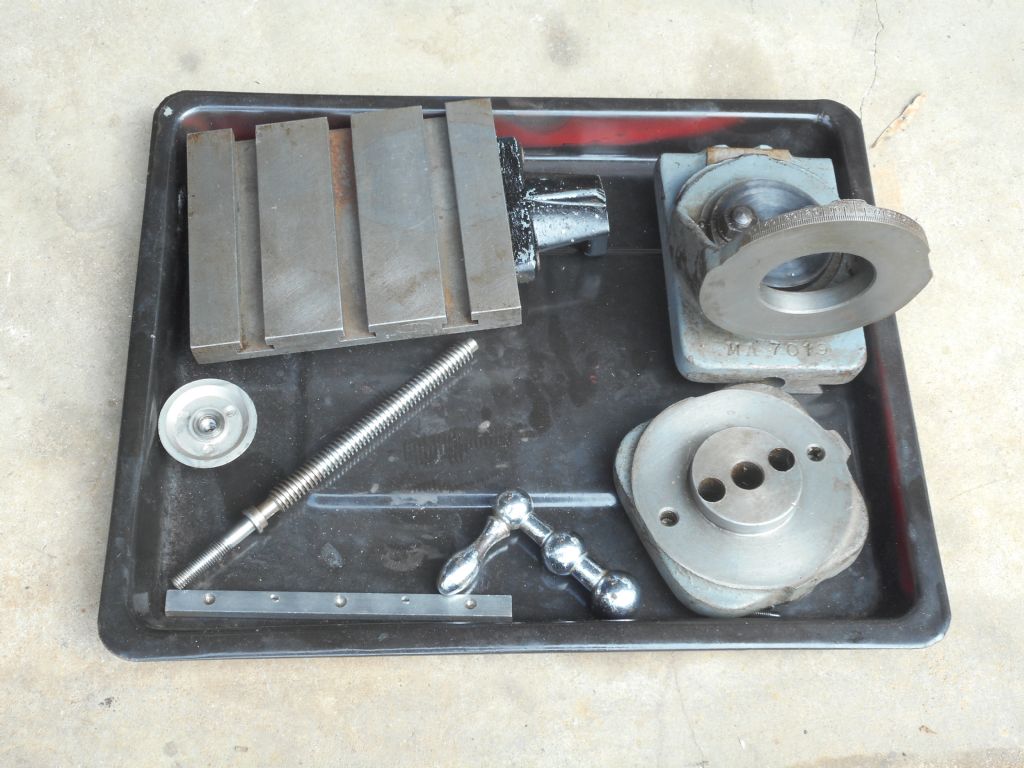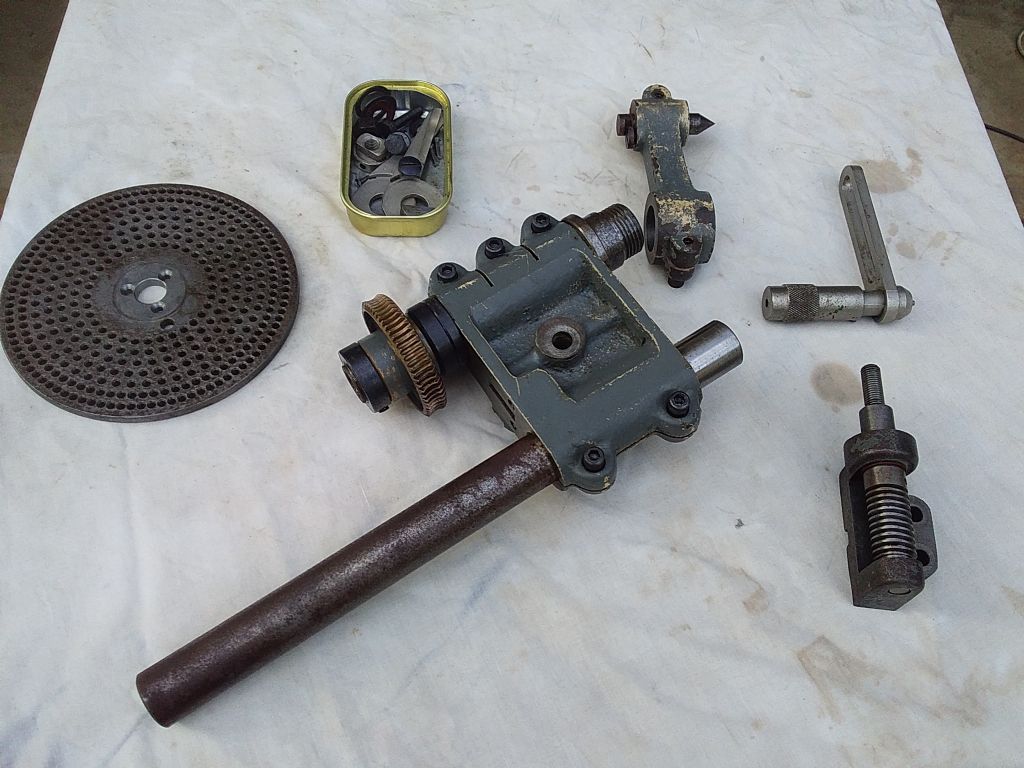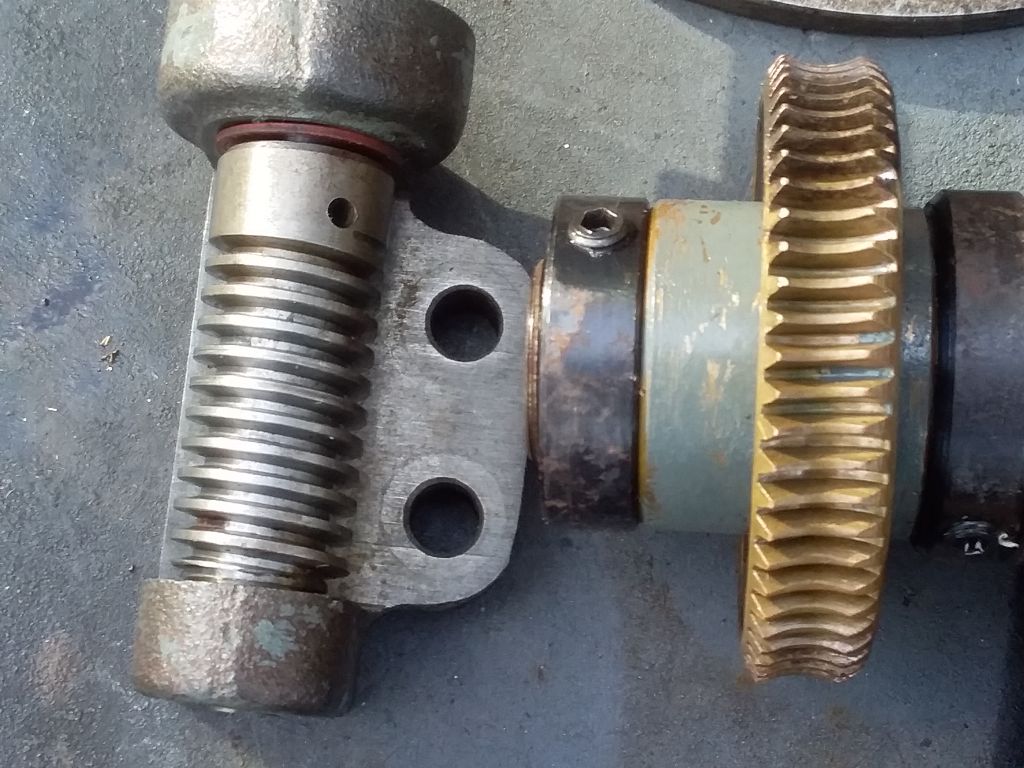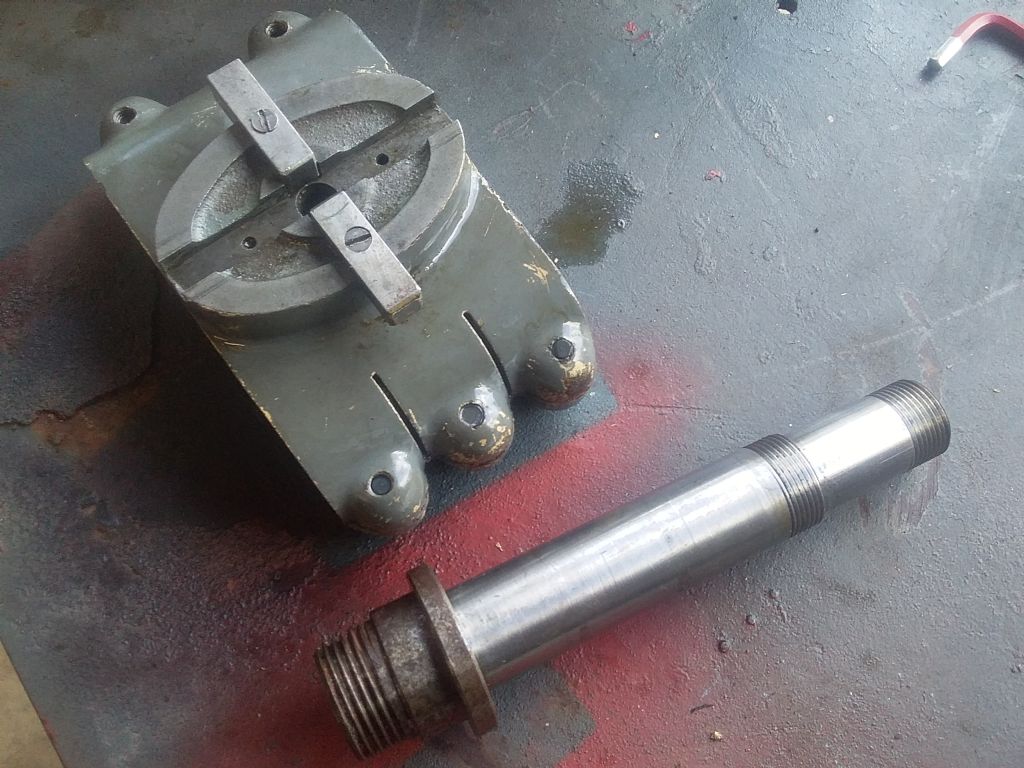My experience of restoring rusty machinery is very limited, and I hope others will weigh in!
I'd be wary of starting by doing anything dramatic like electrolytic rust removal because although it works well on Ferrous metals, it eats Aluminium, Zinc and Mazak, and may corrode Brass or Bronze enough to cause noticeable wear and tear.
I think I'd start by soaking the dividing head for a few days or longer in a light oil. Penetrating oil would be best, but petrol or even diesel would work. ISO32 is a bit thick for this, but it would eventually do the job. Some recommend a mix of Hydraulic Fluid and Acetone, never tried it, but it's a sensible combination – the acetone would penetrate, and carry oil inside with it.
After a good soak, remove any loose muck and corrosion and – without forcing – dismantle anything that comes apart. The individual parts can be cleaned separately, for example the Brass fingers will respond to Vinegar.
If anything is still stuck, and obvious that heat will do no damage, warm and cool the item (or stuck bit) several times with a blowlamp. Too hot to touch, not red-heat! This causes the metal to expand and contract, breaking up rust and gummed oil. May come apart at this stage, otherwise a second long soak will allow oil to penetrate deeper into the mechanism, and loosen everything up step by step. Heat cycling and brute strength is probably the quickest way to unstick corroded parts, but also more likely to cause damage. Soaking takes longer, but is unlikely to break anything. A combination of moderate heating and long soaking will get there in the end, but bear in mind it can take a very long time for oil to penetrate deep into a tight space packed with rust.
Commercial penetrating oils are faster that home-made because they contain a calculated mix of thin and thicker oils designed to dissolve gummed oil and wick into tiny gaps. They also, usually, contain chemicals that attack rust, breaking it into fragments and so the mix penetrates deeper and faster. The main advantage of home-made potions is their cheapness and availability. Molasses has been mentioned, but beware! It's one of those loose lay words that describes several rather different substances. The variant best at rust removal is the rough unrefined type available to farmers as a cheap animal-feed. Makes good sense to use it on a farm. The expensive human food-grade Molasses sold in British food shops is far less effective on rust, I wouldn't bother.
Once components are removed, they can be physically and chemically cleaned using an appropriate method. The main cast-iron body could be brutally wire-brushed and electrolytically cleaned without concern, whilst delicates like gib-strips, worms, screws and bearings should approached much more carefully; fine steel wool, toothbrushes, metal polish etc.
Dave
PS and I see in the time I took to type this, Hopper has already done it! A good soak revealed his dividing head isn't corroded or gummed at all. Result!!!
Edited By SillyOldDuffer on 19/01/2023 10:07:32
 Bazyle.
Bazyle.









